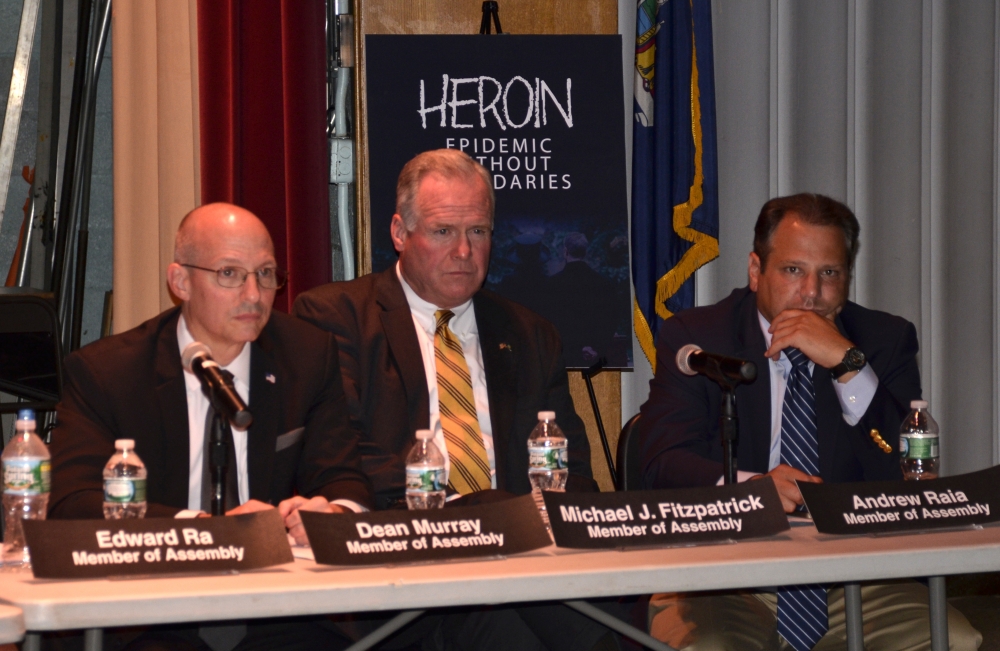Fitzpatrick Unveils Report On Heroin Addiction In New York State
Assemblyman Michael Fitzpatrick (R,C,I-Smithtown) and his colleagues unveiled the final report and recommendations from the Assembly Minority Task Force on Heroin Addiction & Community Response. Fitzpatrick co-hosted one of the statewide task force’s hearings on Long Island held in South Huntington on September 22, 2015.
“Heroin has become so pervasive in our suburban communities on Long Island and throughout the state. It’s an epidemic devastating to those addicted and to their families. We will need a comprehensive approach to treatment, education and criminal justice,” said Fitzpatrick. “Our communities have too many people – often young people – struggling with heroin and opioid addiction, and we must remember to treat the issue, and those affected, with care and compassion. I am proud of our recommendations and believe this is a viable blueprint to help in fighting this scourge.”
Solutions were developed from testimonies of those personally affected by heroin addiction and those addressing the epidemic from the side of treatment and community safety, culminating in the task force report, “The Heroin Epidemic: A Report on Heroin Use, Treatment, Prevention & Education Efforts in NYS.” The report outlines a number of recommended actions such as increasing education, making detoxification programs more accessible and affordable, strengthening post-detox rehabilitation programs, toughening laws on drug dealers, better training for law enforcement, and reviewing insurance and parity laws for treatment and services for people with addictions.
A copy of the report can be accessed here: goo.gl/iQkMtx.
Between 2002 and 2013, statistics from the Centers for Disease Control and Prevention (CDC) showed there were four times as many heroin deaths, a significant increase. According to a NEWSDAY report, heroin killed a record-high 144 people on Long Island in 2013, as an oversaturated drug market forced street prices for the drug down and addicts continued to turn away from costly opioid pain pills. Further reports show that our suburbs continue to be a new battleground of heroin addiction. The CDC statistics also have noted that persons addicted to prescription opioid painkillers are 40 times more likely to abuse heroin.
Fitzpatrick helped pass a number of measures to prevent heroin and opioid abuse. In 2012, he passed the Internet System for Tracking Over-Prescribing (I-STOP), which is used in the medical field to track, in real time, opioid prescriptions, preventing individuals from obtaining them for misuse or illicit drug sales. Additionally, an 11-bill package was passed in 2014 to combat heroin and opioids. This bill package increased penalties for drug dealers.

